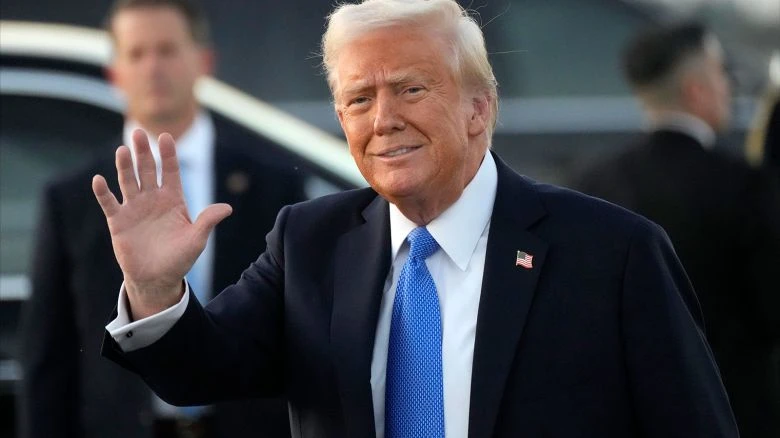Are We Facing Another Financial Crisis?
As bearish sentiment rises and key indicators flash warning signs, investors must navigate a precarious landscape of tariffs, AI valuations, and economic uncertainty.
A survey conducted by the American Association of Individual Investors (AAII) reveals a notable increase in bearish sentiment among U.S. investors. As of late January, approximately 34% of respondents reported feeling pessimistic about the market's trajectory over the next six months, up from 29% just a week earlier. This shift in sentiment underscores rising anxiety about potential economic challenges ahead.
One key metric fueling these concerns is the Buffett Indicator, named after renowned investor Warren Buffett. Historically, this indicator has been used to gauge whether stock markets are overvalued or undervalued by comparing total market capitalization to gross domestic product (GDP). In past instances where this ratio approached or exceeded 200%, such as during the dot-com bubble in 1999-2000, significant market corrections followed.
Currently, the Buffett Indicator stands at an alarming 203.51%. While this figure alone does not guarantee an imminent crash, it serves as a warning signal for investors to exercise caution and consider protective measures for their portfolios.
"If you're playing with fire when this ratio approaches 200%, then we're certainly in risky territory now," remarked financial analyst Jane Doe during a recent interview with CNBC.
In light of these developments, many individual investors are reevaluating their strategies to safeguard against potential losses. A common approach involves maintaining cash reserves to weather any short-term volatility without being forced into selling assets at depressed prices.
Financial advisors emphasize the importance of having an emergency fund readily available during uncertain times. "An emergency fund acts as your financial safety net," explained John Smithson from Wealth Advisors Group. "It ensures you won't have to liquidate investments prematurely if unexpected expenses arise."
In the midst of these market anxieties, President Donald Trump's announcement of new tariffs has added another layer of complexity to the already volatile situation. The proposed 25% duty on imports from Canada and Mexico, along with a 10% tariff on goods from China, has left investors questioning whether these measures will spark a stock market crash. "While tariffs are intended to protect U.S. industries," noted economist Jane D, "they often lead to short-term disruptions that can unsettle markets."
"Investors should focus on maintaining diversified portfolios," advised investment strategist Sarah Lee.
The historical impact of such tariffs suggests that while they may cause immediate turmoil, they do not necessarily precipitate a full-blown market collapse. As reported by Liberty Street Economics, companies affected by previous tariffs have experienced lower average stock returns and deteriorating business fundamentals over time. However, some analysts argue that the long-term outlook for equities remains positive despite these challenges.
"Pricing has got to levels which are high at the same time as there’s an interest rate risk," said Ray Dalio.
Adding fuel to investor concerns is the burgeoning valuation of AI companies like OpenAI. With SoftBank's massive $40 billion investment valuing OpenAI at $300 billion post-money, fears of an AI bubble akin to past tech bubbles have emerged. Billionaire investor Ray Dalio warned that this combination of high valuations and interest rate risks could potentially burst this bubble.
Despite these warnings, proponents argue that investments in AI represent necessary advancements in technology infrastructure and innovation. Sam Altman, CEO of OpenAI, highlighted their strategic partnerships with government bodies and international expansion efforts as steps towards solidifying their position in the global AI landscape.
"A competent executive team is critical during downturns," emphasized corporate analyst Mark Johnson.
Critics remain skeptical about whether such rapid growth is sustainable or if it mirrors past speculative bubbles where exuberance outpaced actual performance metrics. The parallels drawn between current conditions and those leading up to previous crashes underscore why many are urging caution.
As we navigate through these turbulent times marked by potential trade wars and technological upheavals, it's crucial for investors to stay informed and vigilant about their strategies moving forward. "The key is balancing optimism with prudence," suggested veteran trader Alex Greenfield.
Ultimately, how these developments unfold will likely influence future policy decisions and public trust in financial systems worldwide. "We must learn from history but also adapt our approaches for what's ahead," concluded economic historian Emily Carter.
